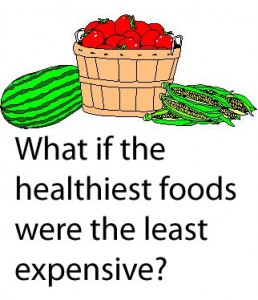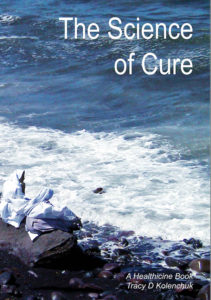 What if the healthiest foods were the cheapest? What if unhealthy foods cost more? Would it make a difference to your health? To your family? To your communities? To your city, your country?
What if the healthiest foods were the cheapest? What if unhealthy foods cost more? Would it make a difference to your health? To your family? To your communities? To your city, your country?
Unfortunately, we have a perfect example for comparison. What is the healthiest drink? We’re not certain, but the best candidate is water. In most cities, water is almost free. But what drinks sell best? Not water. Why does this happen?
Let’s suppose you are a drink manufacturer, and you want to produce and sell the healthiest drink. And of course you want to make a profit. You might think that selling the healthiest drink would be a recipe for sales, profits, money. Imagine you are the company CEO, you head over to the Marketing department and say “Water is the healthiest drink. We need a marketing plan for water.” What will be the response?
Marketing “But what would make ‘our water’ different from tap water? We can’t compete with tap water. And besides, people only drink water when they’re thirsty. How can we maximize sales if we can’t get people to drink when they’re not thirsty. If we add sugar and salt, it will make people thirsty, and our sales will rise. We can market it as ‘better than water, because it gives you energy.”
You: “I don’t want to pretend our product is ‘better than water’. We need to sell the healthiest drink.”
Marketing: “But, water is not ‘new’, and unless we add something, we can’t market it as a ‘new’ product. Maybe if we add some secret ingredients, we could market it as ‘new’?”
You: “We don’t want secret ingredients, we want full honesty on the label. Water, the healthiest drink.”
Marketing: “We could add some carbonation, to give it some zip.”
“We don’t want to sell ‘bubbles’, we want to sell a healthy drink.”
Marketing: “What if we add some color? We could find a new color, something that glows in the dark. That would be great for advertising!”
“We don’t want any strange chemicals in our drink, and we don’t know how they might react with the bottle, or with people’s health.”
Marketing: “If we want to market it as ‘healthy’, we could add some vitamins and minerals?”
You: “It’s nonsense to add synthetic vitamins. It’s expensive to add real vitamins – and besides, people can get real vitamins from eating healthy food.”
Marketing: “How can you expect to compete with soda pop and beer, if you are ‘just selling water’?”
“We don’t want to compete with Coke or Bud. You want to make an honest business selling a healthy drink.”
Marketing: “Selling water is very political. People think water should be free – they don’t want to pay for it.”
You: “We need to sell it for less than soda pop. After all it has fewer ingredients, it should be less expensive to produce. Better than soda, and less expensive. Surely that should sell?”
Marketing resigns and applies to work for a junk food company.
Is it just water? Nope. If you are manufacturing a food, you are manufacturing that food to maximize sales, not for health. Your financial goals are in direct conflict with ‘health’.
Food manufacturers want to maximize sales. They want to sell foods that you will buy, eat and drink, even when you are full. Even when you don’t need food. How can they do that? Easy. What can you eat, even when you are full? Desert.
Food manufacturers can sell sweet things, even if you are full. Even if you don’t eat them, you can feel good by giving them to children. Children are never full.
Foods that you can eat when you are full are foods that pass right through your stomach. Did you ever get the munchies? An hour after dinner? How does that happen? Are you a failure because you get the munchies right after dinner?
Nope. Marketing is a success. Marketing spends a lot of time designing foods so you will buy, and consume, more than you need.
Why? Because marketing can’t sell ‘health’. It’s easier to sell fear, uncertainty, and doubt, than health. Do you feel a pain in your stomach? Eat some ice cream. You’ll feel better. Worried about gaining weight? Munch on some chips. Just a few. Acid reflux from overeating? Eat some antacids. Tired? Drink an energy drink.
Healthiest foods that are the least expensive? No one would believe it. If the healthiest foods were the least expensive? No-one would buy them.
Now, an interesting question: Are the healthiest foods the least expensive? Are less expensive foods actually healthier? Does a potato cost less than a bag of potato chips? Yes it does. Which is healthier? Which is more ‘filling’? Which do most people choose to buy?
Medicine, and marketing are both blind to health. There is no medical nor scientific technique to measure your healthiness – unless you are sick, or the healthiness of your foods- unless they make you sick. There is no scientific technique that can tell us which foods are healthier.
to your health, tracy
Tracy is the author of two books about healthicine:


